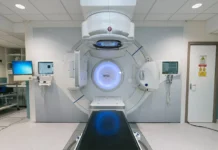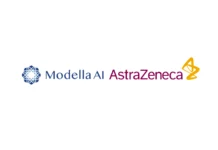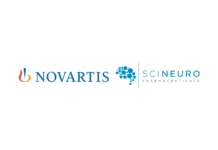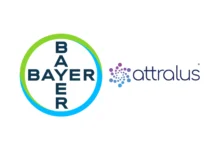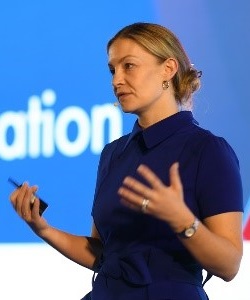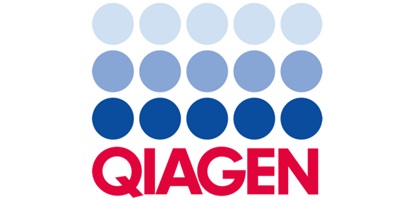In the evolving landscape of healthcare, precision medicine has emerged as a game-changer, promising tailored treatments and improved patient outcomes. At the forefront of this revolution is QIAGEN, a global leader in Sample to Insight solutions, making significant strides in the field of companion diagnostics (CDx). This article explores QIAGEN’s pivotal role in advancing precision medicine through its innovative CDx offerings and collaborations with pharmaceutical giants.
Understanding companion diagnostics
Companion diagnostics are specialized tests that help healthcare professionals determine the most suitable treatment for a patient with a specific disease or condition. These tests identify patients who are most likely to benefit from a particular therapy based on their genetic makeup or the presence of specific biomarkers. The primary goal is to increase the chances of successful outcomes while reducing the risk of adverse effects.
QIAGEN’s leadership in companion diagnostics
QIAGEN has established itself as a preferred partner in precision medicine, offering a comprehensive range of Sample to Insight solutions. QIAGEN has transformed precision medicine from a vision to reality through its leadership in liquid biopsy technology. This includes developing the first FDA-approved plasma-based test for breast cancer with Novartis and launching non-invasive liquid biopsy kits with BD for drug resistance and minimal residual disease monitoring. And now are expanding the use of CDx into broad non-cancer disease areas, such as Parkinson or Alzheimer.
Here are the key areas in which QIAGEN supports pharmaceutical companies and healthcare providers:
1. A preferred partner in precision medicine

QIAGEN boasts over 30 collaboration agreements with major pharmaceutical companies, making it the leading partner in developing and offering companion diagnostics. These partnerships include industry giants such as Amgen, AstraZeneca, Bayer, Boehringer Ingelheim, Bristol-Myers Squibb, Eli Lilly, and Novartis. These collaborations drive innovation and accelerate the development of targeted therapies across various disease areas.
2. Comprehensive biomarker test portfolio
QIAGEN offers a diverse portfolio of tests for precision medicine applications, covering a broad range of biomarkers. The company’s product offerings include regulatory-approved assays for oncogenes such as KRAS, PIK3CA, FGFR, BRAF, and EGFR, which are often associated with certain types of lung, colorectal, and melanoma cancers. By identifying these mutations, doctors can select therapies that are more likely to be effective for individual patients.
QIAGEN is also expanding its companion diagnostic development into areas beyond cancer. The company is actively working on diagnostics like Parkinson’s disease, chronic disease, and neurodegenerative diseases including Alzheimer’s. These efforts reflect QIAGEN’s commitment to broadening the scope of precision medicine, enabling healthcare providers to tailor treatments for a wide array of diseases based on a patient’s unique genetic and biomarker profile.
3. Regulatory Approvals and Compliance
With a proven track record of CE-IVD and FDA approvals, QIAGEN ensures that its diagnostic solutions meet the highest regulatory standards. The company’s portfolio currently comprises 14 FDA-approved companion diagnostics, demonstrating its commitment to quality and reliability in precision medicine.
4. Versatile technology platforms
QIAGEN offers a broad range of technology platforms for developing companion diagnostics, including:
- Quantitative PCR (qPCR) – offers precise and reliable results, which are essential for identifying specific genetic mutations and tailoring therapies accordingly.
- Digital PCR – Including the upcoming QIAcuity Dx, dPCR is beneficial in detecting low-abundance mutations and rare biomarkers, which are critical in the development of targeted therapies.
- Next-Generation Sequencing (NGS) panels – enables comprehensive genomic profiling, identifying a wide range of genetic mutations in a single test. This also allows pharmaceutical companies streamline their research and bring targeted therapies to market more efficiently.
- QIAstat-Dx – helps precision medicine move closer to the patient, out of centralized labs and into the secondary care setting, where specialty care providers can make rapid decisions for a patient’s potential suitability for targeted medicines.
This versatility allows QIAGEN to adapt to various diagnostic needs and support diverse therapeutic approaches.
5. Advanced bioinformatics solutions
QIAGEN’s bioinformatics solutions enable users to generate valuable molecular insights from highly complex genomic data. The QIAGEN Clinical Insight, a clinical decision support system tailored to the needs of clinical labs, can be integrated into the company’s next-generation sequencing workflow. This integration streamlines the process of translating raw genetic data into actionable clinical insights.
Driving innovation in oncology and beyond
Precision medicine started to be applied in non-cancer diseases as well. This is still new, and QIAGEN assumes a significant expansion of precision medicine into hereditary diseases during the upcoming years.
- QIAGEN is pioneering this disease area through our NGS-based companion diagnostics programs with Neuron23 in Parkinson´s disease and with our partnership with Helix.
- QIAGEN recently expanded our partnership with Astra Zeneca to develop and commercialize a CDx for their future therapy in the field of chronic diseases. The test will run on our versatile multiplex platform QIAstat-Dx that takes only 1 hour to generate results. And we have other partnerships for this platform signed in areas such as Alzheimer.
- Platforms like QIAstat-Dx help precision medicine move closer to the patient, out of centralized labs and into the secondary care setting, where specialty care providers can make rapid decisions for a patient’s potential suitability for targeted medicines. That is another key trend.
The impact of QIAGEN’s companion diagnostics
QIAGEN’s companion diagnostics play a crucial role in advancing precision medicine:
- Improved patient outcomes: By matching patients with the most effective treatments based on their genetic profile, QIAGEN’s CDx solutions help improve treatment efficacy and reduce adverse effects.
- Cost-effective healthcare: Precision medicine enabled by companion diagnostics leads to more efficient use of healthcare resources, reducing the economic burden of ineffective treatments.
- Accelerated drug development: Pharmaceutical companies can use QIAGEN’s molecular tests to design more efficient clinical trials, increasing the likelihood of new drug approvals and potentially reducing the time and cost of bringing new therapies to market.
- Expanded drug applications: By combining drugs with genetic tests, pharmaceutical companies can explore new applications for existing drugs, potentially expanding their market reach.
As the field of precision medicine continues to evolve, QIAGEN stands at the forefront, driving innovation through its comprehensive companion diagnostics offerings. By fostering collaborations with pharmaceutical companies, developing cutting-edge technologies, and expanding into new therapeutic areas, QIAGEN is playing a pivotal role in shaping the future of healthcare.
The company’s commitment to providing Sample to Insight solutions ensures that healthcare providers have the tools they need to make informed decisions about patient care. As we move towards a more personalized approach to medicine, QIAGEN’s contributions to companion diagnostics will undoubtedly continue to have a profound impact on patient outcomes and the efficiency of healthcare systems worldwide.



